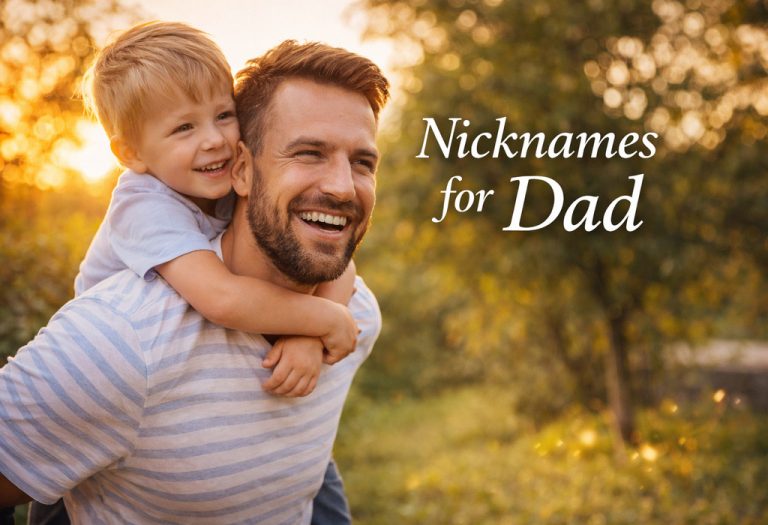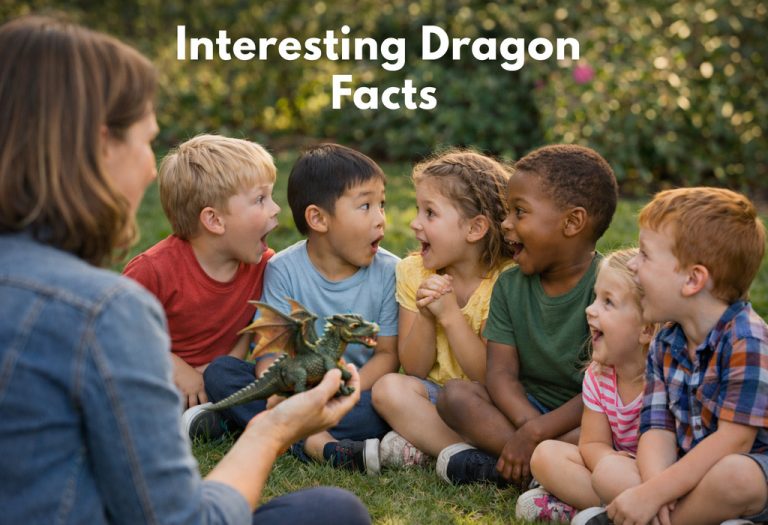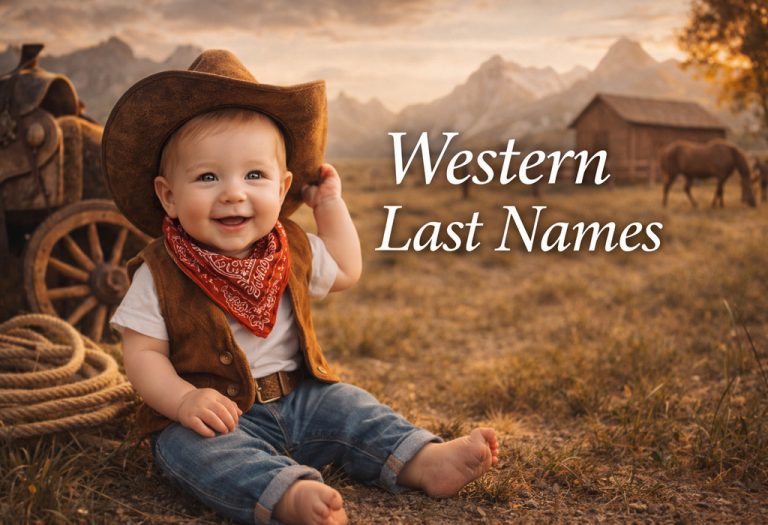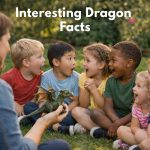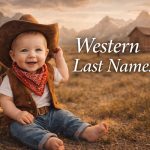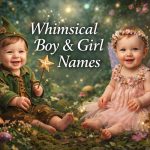Amazing Things About Baby’s First Words That Can Reveal Their Future
- How You Should Know If Your Baby Said Their First Word
- List of Common Baby’s First Word
- Amazing Things You Should Know About Baby’s First Words
- Beyond the First Words
- FAQs
Are you excitedly waiting to hear the first words of your growing baby? Did you know that the first words of your baby have some hidden meanings and predictions about his future personality?
Little ones start expressing themselves by cooing when they are about three months old. This is the murmuring sound that your baby makes and is immensely cute! Cooing is an initial stage of the development of your baby’s vocal sounds. But by the time your baby turns six months old, he will start to use his tongue, lips, and palate to utter random syllables.
While rhyming words like Papa and Mama are very common, some babies may choose something entirely different to start their language journey. As per science, there are some fascinating insights you can draw from the words your darling chooses to utter in his initial days!
How You Should Know If Your Baby Said Their First Word
Recognizing your baby’s first word is an exciting milestone in their development. It’s a moment that signifies their growing ability to communicate and understand language. Here is a baby first words list to help you determine if your baby has said their first word:
1. Clear and Consistent Use
If your baby says a specific word clearly and consistently in the right context, such as “mama” when reaching for you, it’s likely their first word. Consistency and clarity are crucial signs.
2. Response to Stimuli
Notice if your baby uses the word in response to a specific stimulus or situation. For example, if they say “ball” when they see a ball, it indicates they are associating the word with the object.
3. Repetition
Your baby might repeat the word several times, showing that they are trying to communicate something specific. Repetition is a strong sign of intentional communication.
List of Common Baby’s First Word
The first words spoken by babies are often simple and relate to their immediate surroundings or people they interact with most. These early words can vary, but many commonly fall into a few key categories. Here are some of the most frequently heard infants first words:
1. Mama
Often one of the first words, as babies frequently interact with their mothers and find the sound easy to mimic.
2. Dada
Another common early word, usually referring to the father or a close male figure in the baby’s life. Why do babies say dada first? Babies often say “Dada” first because the sounds are simple to produce, it is frequently used in affectionate interactions, and it is reinforced by repeated exposure and emotional connections with the father.
3. Bye-bye
A word that babies often learn quickly because it’s used frequently during departures and goodbyes.
4. Ball
A simple word that refers to a common toy and is easy for babies to say and recognize.
5. Milk
A useful word related to a key part of a baby’s diet, making it a practical choice for their first word.
6. No
Often picked up quickly as it is used frequently in everyday interactions and is a simple sound to produce.
7. Cat
If there is a family pet, especially a cat, babies might start to say this word as they learn to identify animals.
8. Dog
Like “cat,” this word is often learned if there is a family dog, and it’s a sound that babies can easily imitate.
9. Hi
A simple greeting that babies might pick up from repeated social interactions.
10. Eat
A practical word connected to mealtimes, making it a frequent early word as babies start to understand their needs and routines.
Amazing Things You Should Know About Baby’s First Words
The journey of a baby’s first words is a fascinating milestone that reveals much about their development and communication. Discover some amazing insights into this exciting phase of language development.
1. Does Your Baby Love Mama or Papa More? The First Words Have an Interesting Answer
This is a question that always comes up, if only for fun. Well, research has established without doubt that babies as young as six months can understand labels for their mother and father. That is, they can recognise both parents, and both are important for them. But mommies are luckier here. More babies have been observed to say ‘mama’ before ‘dada’!
The good news is that the reason is purely technical: it’s much easier to say mama than dada. Mama can be produced by simply closing and opening the mouth, whereas sounds like ‘d’ or ‘p’ involve the lips and the tongue – too much work! Thus, if your baby chooses either of these as his first words, it signals that his linguistic development is on track and also that you have now been registered in his mind as a very important person! Quick tip: daddies should try to encourage their babies to say papa instead of dada or daddy. They are likely to see more success. 😉
2. The First Words Can Also Point to Who or What your Baby Sees as Familiar and Reassuring
The realm of baby talk is still mysterious. But of one thing we are sure: a child’s first word is much more likely to be something they see every day and not something they are told to repeat. So, it won’t do to sit near the baby and ask them to repeat something after you. It is less likely to work if this object or person is not perceived as a consistent and secure presence in your baby’s world.
Here’s what experts are suggesting: if fathers want their babies to call out to them, as much as they call out to mama, then they need to do their share of early childcare! They need to be in the visual background of their baby, and spend time with them so that the child starts seeing them as a regular pattern. Quite a wonderful reason to get all the husbands pitching in for their share of parenting!
3. Your Baby’s First Words Offer a Sneak Peek Into His Culture and Worldview. Will Your Baby Be As Connected to the Indian Culture As You’d Like Him to Become?
A number of studies have clearly linked the nature of first words to our culture. For instance, American children are likely to start with a common noun (“ball”) while Chinese children are likely to begin with a name of a person or a verb. This refutes the theory that the first words depend only on what’s easy to pronounce. So, if your little one had a first word such as “tata” (Grandpa in parts of South India) or “puja” (picked up from something his grandma uses a lot), it is an early indicator that you have quite a culture-conscious child!
4. His Choice of First Words Can Reveal How Observant and Expressive He Will Grow up to Be
Check out what happened with this mother and her baby. She shared an incident on the internet about how her baby’s first word was “dat.” By “dat” he meant “that” of course. He had chosen a word which doesn’t deal with grammar or spelling and is used in so many sentences throughout the day. He would keep saying “dat”, “dat”, “dat” all day while pointing at different things he saw. When her child grew up, he became a really observant kid who not only noticed everything but also shared his thoughts with everyone. Interesting, right?
Over time, science has thrown light on how the words we choose first, even as little babies, capture who we become over time. So, if your baby has chosen something like “yeh” (this) or “wo” (that) and points at things while mouthing these words, you may be raising a very curious young fellow.
5. The Words Your Baby Does – or Does Not – Pick Can Give You an Early Warning of Speech Disorder or Even Autism
This one is fascinating – science has confirmed that the visual environment of your baby, mainly during mealtime, plays a big part in deciding his first words! So, the high-frequency objects he sees and hears about every day are likely to become his first nouns! Has your baby picked “bowl”, “spoon” or “shirt” as his first words? It could indicate that his visual processing is top-notch!
There is a reverse side to this, too. If your little one has a good number of objects in his surroundings and the pattern is consistent over time, he should find it fairly easy to pick these objects as first nouns. Failing to do so could be an early indicator of speech disorders or even autism. This is because children with autism often have object-processing problems too.
Beyond the First Words
So much lies hidden in the first words your baby chooses! They are the first time he is expressing himself with something other than crying or making faces – and the occasion is truly momentous! After your baby has mouthed his initial words, he is likely to soon begin to understand other words that you use regularly. At nine months, he should be able to comfortably understand gestures well and point out to indicate his wants. At this stage, he will use a vast range of consonants and vowels and speaks simple words with expressions, such as ‘Hi’ and ‘Bye’ as greetings, ‘I’ and ‘You’ by pointing out persons, ‘Bill’ and ‘Pup’ by pointing to the pets, and ‘Cup’ and ‘Tub’ by showing you his toys.
When he reaches his one year milestone, your baby will have developed vocalization and you will hear him speaking slightly complex words, such as Mummy, Baby, Daddy, Cookie, Juice, Car, Duck, Tea, Ball, Bat…what fun! This is the time when your baby prefers to speak out a variety of nouns, simple verbs and adjectives. He may even start responding to simple questions like ‘Do you want a cookie?’ by answering ‘Ya’ or ‘Nah’.
FAQs
1. What if my baby’s first word isn’t clear?
It’s common for a baby’s first word to be somewhat unclear or not pronounced perfectly. As long as they are using the word consistently and in the right context, it is considered a milestone.
2. Can a baby say their first word before 12 months?
Yes, some babies might say their first word as early as 9 or 10 months. Development varies widely among babies, so earlier speech is possible.
3. Should I be concerned if my baby doesn’t have a clear first word by 15 months?
While many babies start speaking their first words around their first birthday, a delay until 15 months isn’t necessarily a concern. If other aspects of language development seem normal, it might just be a matter of time.
4. Is it normal for a baby to say a word and then stop using it?
Yes, it is normal. Babies may experiment with words and then stop using them as they learn new ones. Consistent use and encouragement can help reinforce early words.
By the time another year has passed, you will note significant progress in his linguistic skills. The little one can speak out 1 to 10 digits and call out to his siblings and cousins by their names. Not just that, he may also speak two or three words together making a small sentence such as ‘I run’ or ‘You run’. There now is quite a talker at home and get ready for long conversations about funny things that happen throughout the day.
References/Resources:
1. Language Development: 8 to 12 Month; American Academy of Pediatrics; https://www.healthychildren.org/English/ages-stages/baby/Pages/Language-Development-8-to-12-Months.aspx
2. My baby is turning a year old this month. Should she be talking by now?; American Academy of Pediatrics; https://www.healthychildren.org/English/tips-tools/ask-the-pediatrician/Pages/one-year-old–Should-she-be-talking-by-now.aspx
3. Important Milestones: Your Baby By Four Months; CDC; https://www.cdc.gov/ncbddd/actearly/milestones/milestones-4mo.html
4. Know the Signs of Speech and Language Disorders; American Speech-Language-Hearing Association; https://identifythesigns.org/signs-of-speech-and-language-disorders/
5. Speech and Language Delay; Familydoctor.org; https://familydoctor.org/condition/speech-and-language-delay/
6. Language development: Speech milestones for babies; Mayo Clinic; https://www.mayoclinic.org/healthy-lifestyle/infant-and-toddler-health/in-depth/language-development/art-20045163
7. Age-Appropriate Speech and Language Milestones; Stanford Medicine Children’s Health; https://www.stanfordchildrens.org/en/topic/default?id=age-appropriate-speech-and-language-milestones-90-P02170
Also Read:
Best Ways of Talking to a Baby
Baby Babble: A Stepping Stone to Talking
Activities for Baby Language Development
How to Use Infant Directed Speech to Help Babies Learn a Language
Was This Article Helpful?
Parenting is a huge responsibility, for you as a caregiver, but also for us as a parenting content platform. We understand that and take our responsibility of creating credible content seriously. FirstCry Parenting articles are written and published only after extensive research using factually sound references to deliver quality content that is accurate, validated by experts, and completely reliable. To understand how we go about creating content that is credible, read our editorial policy here.






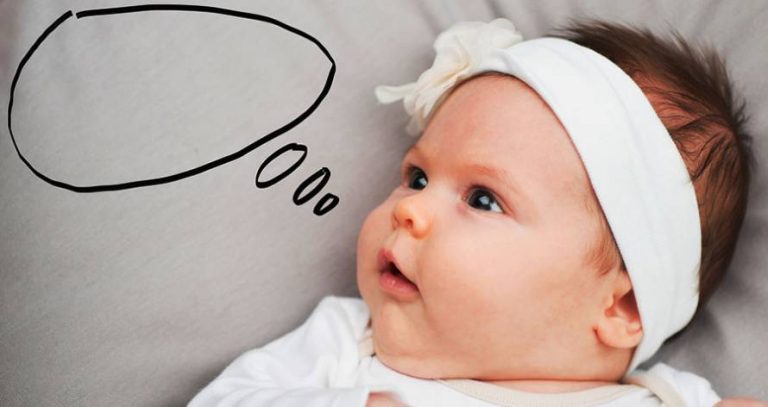
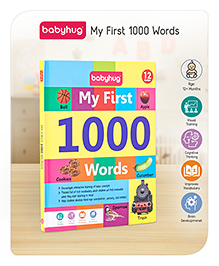
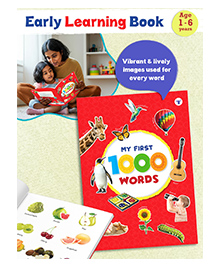
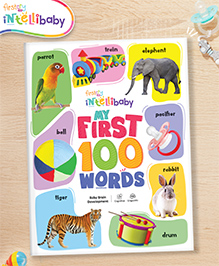
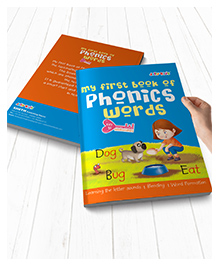
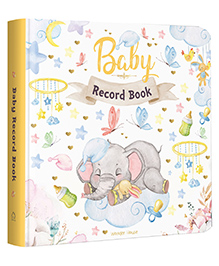
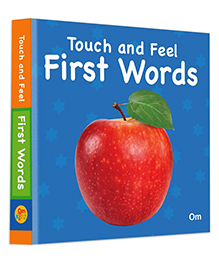
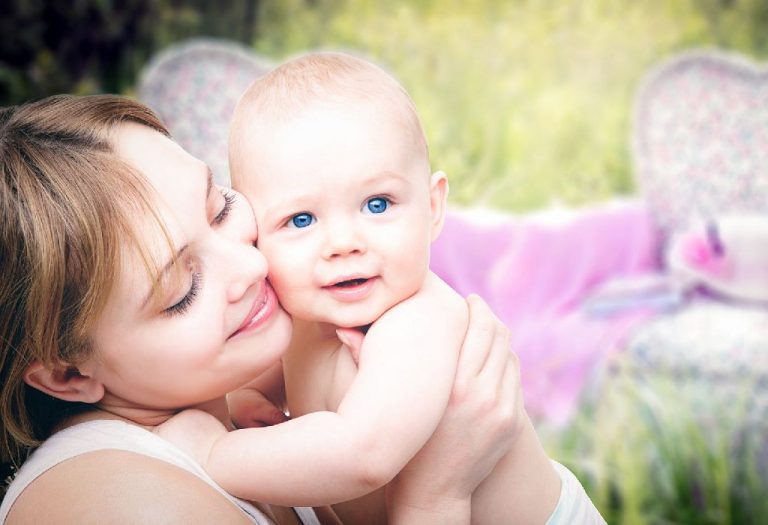
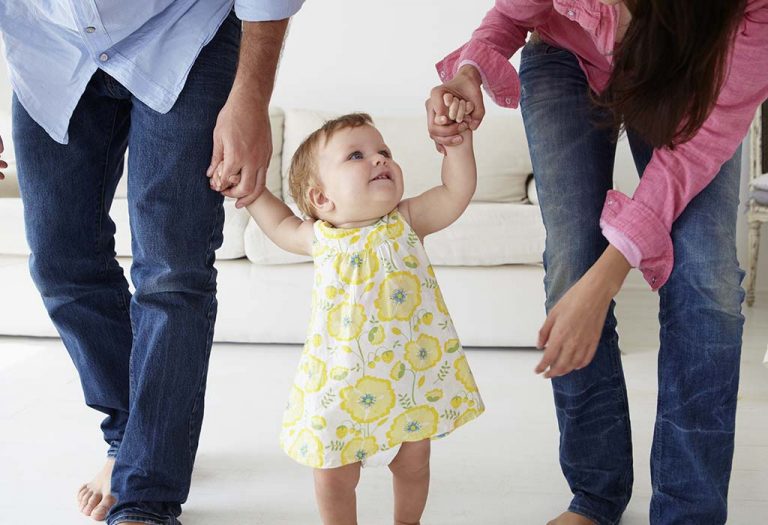
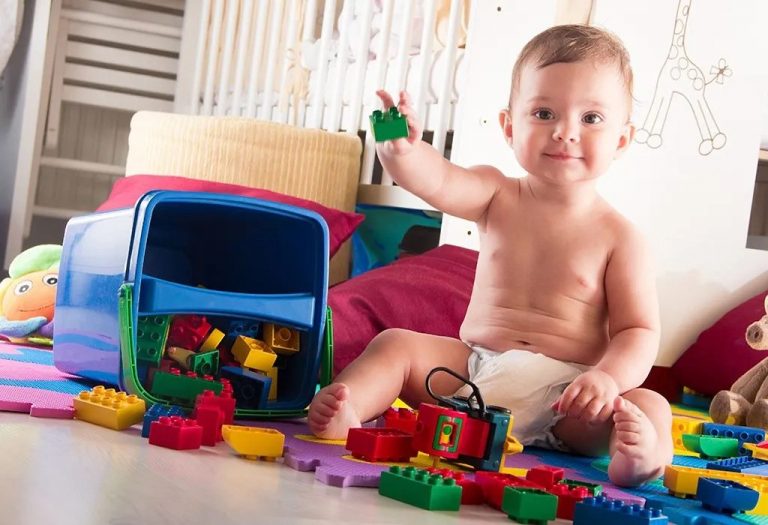
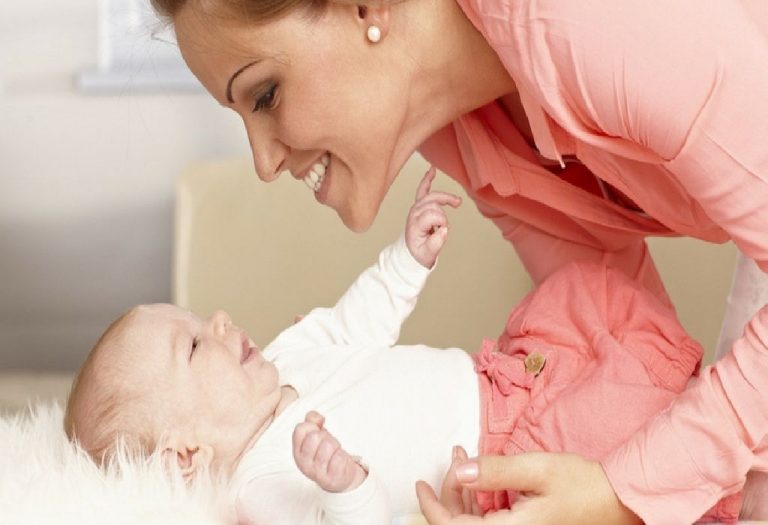
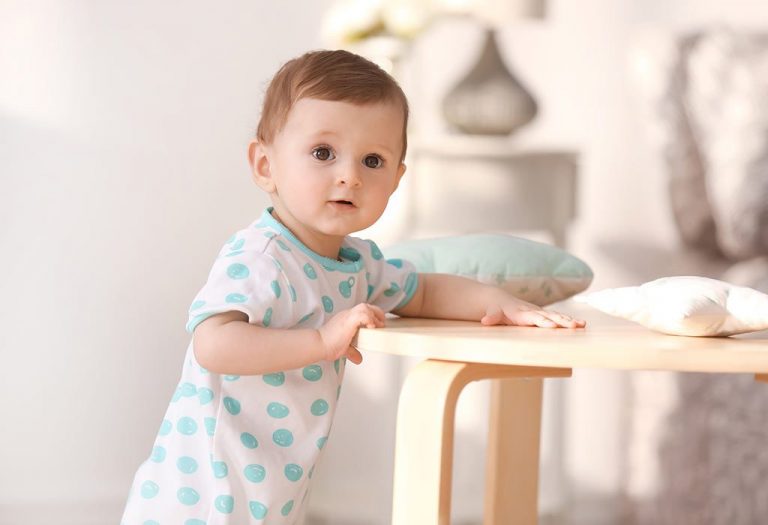

.svg)








